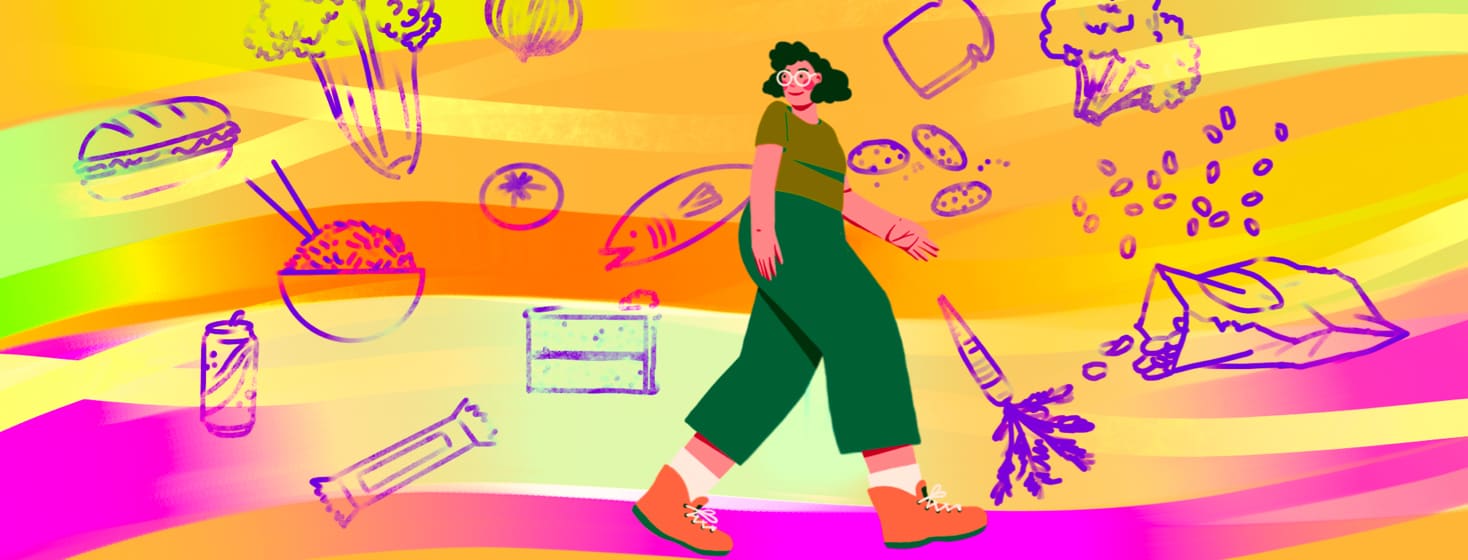We Are What We Eat, Aren't We?
I’ve had rheumatoid arthritis for 10 years now. When my elbows first swelled up like little balloons, I was only 15. My mom and I were referred to a rheumatologist at our local children’s hospital, and without any hesitation, I was started on a long and winding path of medications. First up, steroids for immediate relief. Then, Methotrexate. Then, Naproxen. Years of testing different biologic injections in conjunction with more steroids followed.
Exploring alternatives to medication
5 years and 10+ medications later, I started to question whether my only option was to be on medication for the rest of my life if I wanted to live pain-free. So, like the good college student I was, I started to research alternatives. What I discovered, at the time, was possibly insignificant but fascinating nonetheless: a connection existed between food and inflammation.
Excited and curious, I brought the discovery to my rheumatologist. He didn’t even let me finish before telling me, “That’s all bogus.” He continued, saying there’s absolutely no connection between what I eat and my arthritis. A little taken aback by his assuredness, I remained quiet. He’s the doctor, of course he knows. And after all, it is much easier to eat whatever I want. I left the doctor that day feeling unsure of my new discovery and without any definitive answers.
Listen to your doctors and to your body
That is until now. I’m now 26 years old and certain there is a direct connection between what I eat and how I feel. Ever since I was reinspired to prioritize my nutrition and lifestyle choices a couple of years ago, I’ve felt the best I ever have in my short life. I am still on medication, but it’s not holding me back from feeling good anymore, as it used to.
Unfortunately, you still won’t hear many rheumatologists talk about nutrition and lifestyle with their patients. I think that’s because they don’t actually know. In a 4-year medical school curriculum, students are only required to take up to 20 hours of nutrition education, and even that often falls short.
My controversial opinion on nutrition
When you think about why that is, it makes sense. The medical system doesn’t want to talk about natural modes of healing because there’s no money involved. My controversial opinion is they would prefer to keep us as sick as possible- it’s more profitable that way. If you do your own research, it’s clear that there’s evidence showing the dietary and lifestyle choices we make every day have an impact on our overall health.
The natural next question, of course, is: how? Unfortunately, there are a lot of people with a lot of ideas. After 2 years of conflicting information overload, I have found the only real valuable thing worth noting to you is to avoid processed “foods.” Can they even really be considered foods? They’re more like lab concoctions, and they’re not good for us. Just eating real whole foods that actually grow in nature has made a world of difference in how I feel.
What works for me may not work for you
Now don’t get me wrong, I am not here to promote any special ‘cure-all’ diet. In fact, I would implore you not to get too caught up in the hoopla you read online (including this article!). After spending 2 years following countless diets and protocols, all claiming to have healed thousands, reversing their diseases, etc., I finally learned the hard truth: what works for someone else might not, and probably won’t work for me. It's best I follow my own intuition.
Our bodies are all so uniquely different. No one body processes the same as another. The only thing that’s truly worked for me is learning to listen to and love my own body. All the answers I needed were there, I just had to learn to listen. Now I can see that my pain increases and decreases based on the food choices I make, how much I sleep, how stressed I am, and how much movement I get each day. As a bonus, my fatigue, brain fog, mood, bloating, and skin have all changed for the better, too.
Embrace your own unique journey
The biggest message I hope you take away from my story is not that you need to demonize medication and follow some special protocol to feel better, as you will find so many suggesting online, but instead to embrace your very individual journey to health with patience and curiosity. It’s not easy but it’s worth it. Once I began to fall in love with the process, all the ups and downs included, it became easier. Our bodies are actually really cool. I hope you take a chance and get to know yours.

Join the conversation